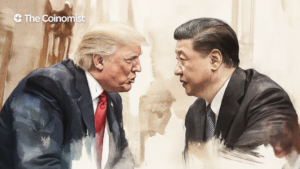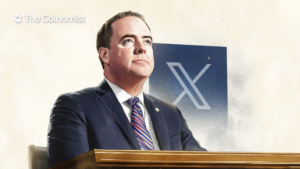SEC Clears Helium Tokens, Marking End of Gensler’s Crypto Crackdown

The SEC has dismissed the lawsuit against Helium, concluding that the project’s tokens and devices do not qualify as securities.
On this page
The U.S. Securities and Exchange Commission (SEC) dropped the lawsuit against Helium, confirming its decision that the project's tokens and devices are not securities.
This landmark decision clears up legal uncertainties for similar decentralized projects and marks a shift in the approach to cryptocurrency regulation in the U.S.
Notably, the decision came as the SEC transitioned to new leadership following the departure of the controversial Gary Gensler from the chairman position.
The SEC’s ruling sets a precedent for other decentralized projects, especially those relying on physical infrastructure to run their networks. Furthermore, it could influence the future regulation of similar projects like Helium, clearing up legal uncertainty regarding their status under securities laws.
Initially, the SEC sued Nova Labs (the company behind Helium), accusing it of violating securities laws due to unregistered token offerings and misleading claims about partnerships with large companies like Nestlé and Salesforce.
However, by dropping the charges, the SEC effectively ended the legal battle without imposing major penalties, marking a notable shift in its regulatory stance.
You might also like: Telefónica Integrates Helium’s Decentralized Network for Mexico
Political Context and Leadership Change at the SEC
The SEC's decision in the Helium case marked a key moment in the transition of leadership within the Commission, as Gary Gensler stepped down from his position as chairman and was succeeded by Paul Atkins. This event signifies a significant shift in the approach to regulating cryptocurrencies and decentralized projects.
Related: Who are you, Mr. Paul Atkins?
During Gensler’s tenure, the SEC enforced a hardline stance toward the crypto industry, initiating lawsuits against major projects like Binance and Coinbase and investigating other cryptocurrency companies. His policy focused on tight control, which drew criticism from parts of the crypto community, particularly concerning the legal status of tokens and their regulation as securities.
Now, under Paul Atkins and Acting Chair Mark Uyeda, the SEC has started to reconsider its stance. This includes decisions to exclude meme coins, mining, and stablecoins from the list of regulated securities.
As a result, the crypto industry may now have more room to innovate, with future regulations becoming more lenient and supportive of innovation.
The content on The Coinomist is for informational purposes only and should not be interpreted as financial advice. While we strive to provide accurate and up-to-date information, we do not guarantee the accuracy, completeness, or reliability of any content. Neither we accept liability for any errors or omissions in the information provided or for any financial losses incurred as a result of relying on this information. Actions based on this content are at your own risk. Always do your own research and consult a professional. See our Terms, Privacy Policy, and Disclaimers for more details.























